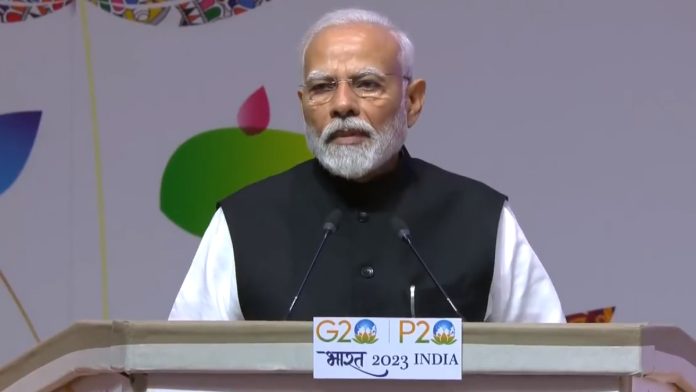WASHINGTON, Oct 17: The Indian Jewish community is grateful to Prime Minister Narendra Modi for his robust statement of support to Israel following the Hamas attack, an Indian-American Jew leader has said.
Speaking to PTI, Nissim Rubin, Assistant Director of the American Jewish Committee’s Asia Pacific Institute based in Washington DC pointed out that the Indian Jewish community in Israel, like other inhabitants of the country, has been “severely affected” by Hamas’ brutal attack on October 7 that killed over 1,300 people.
“We are very grateful to Prime Minister Narendra Modi for the robust statement of support, within a few hours of the attacks on October 7. And Prime Minister Netanyahu, on the following day, spoke with him, which shows the bond between the two countries and the two persons,” he said.
Prime Minister Narendra Modi told his Israeli counterpart Benjamin Netanyahu on October 10 that the people of India stand firmly with his country in this difficult hour, expressing strong and unequivocal condemnation of terrorism in all its forms and manifestations.
Rubin, who has been working in Washington DC for the past 20 years, said, “I am an Indian Jew, originally from Ahmedabad, but most of my family live in Israel.” His work focuses on building partnerships in the US, Israel, and Asia, with a significant focus on India and the Indian American diaspora.
“We lost a young female Jewish soldier of Indian origin who died in a firefight with the terrorists on the first day of the attacks on October 7,” he said, citing the sufferings of the Indian Jewish community in the war-torn country.
At least two Israeli women security officers of Indian origin were killed in the unprecedented attack carried out by the Palestinian militant group Hamas, official sources and people from the community confirmed on Sunday. Both of them are said to have died on duty in combat.
Israel, Rubin said, has always stood with India.
“Even when there were low-level diplomatic relations, Israel came to India’s aid in the wars of 1965, 1962, 1971 and especially in 1999 in Kargil when Israel rushed much-needed defence recoupment and supplies at short notice. Today we see this support being repaid back multifold by the people of India with a robust support and understanding of Israel’s situation,” Rubin said.
“We are very grateful to Prime Minister Modi and Foreign Minister Jaishankar for initiating Operation Ajay through which Indian students and IT professionals were taken back from Israel to India,” he said.
“There are 90,000 Jews of Indian origin. There are 30,000 Indian citizens who are working mostly as caregivers. We have not heard of any of them abandoning their jobs and going back to India because they are a very vital part of Israeli society and take care of the elderly and handicapped people,” Rubin said.
“Even the students who stayed back in Israel, their professors, and their college-mates are checking with them regularly about their wellbeing,” he added.
“As an Indian American and as a Jew, we have been very distraught for the past eight days. But we have enormous hope in the US-Israel-India Partnership. We will not forget that just before these attacks at the G20 IMEC, the India-Middle East Economic Corridor pact was signed. I2U2 was initiated at the recent general assembly in 2023. We are very confident that the Middle East will progress on the path of peace and prosperity in future,” he said.
“But one thing is for sure, that we definitely need to get rid of Hamas. We need to get rid of Pakistan-based terrorist organisations, Jaish-e-Mohammed, Lashkar-e-Taiba,” said the Indian American Jew.
Rubin said the most vital factor in this scenario was the US and India being in sync with each other regarding matters concerning the Middle East. “That’s how the IMEC was signed, bringing hope for expanded economic opportunities for the region and beyond. India, the US and Israel can work together in terms of ensuring peace through security. Without security, there will be no peace,” he said.
The second most important factor, he pointed out, was India and the US having common partners in the Middle East. “We have to realise that after the United States, India has the closest ties with all the Gulf nations, UAE, Bahrain, Oman, Saudi Arabia. Both the nations working with these close allies will bring about a stabilised situation regarding the conflict,” Rubin said. (PTI)
Trending Now
E-Paper


